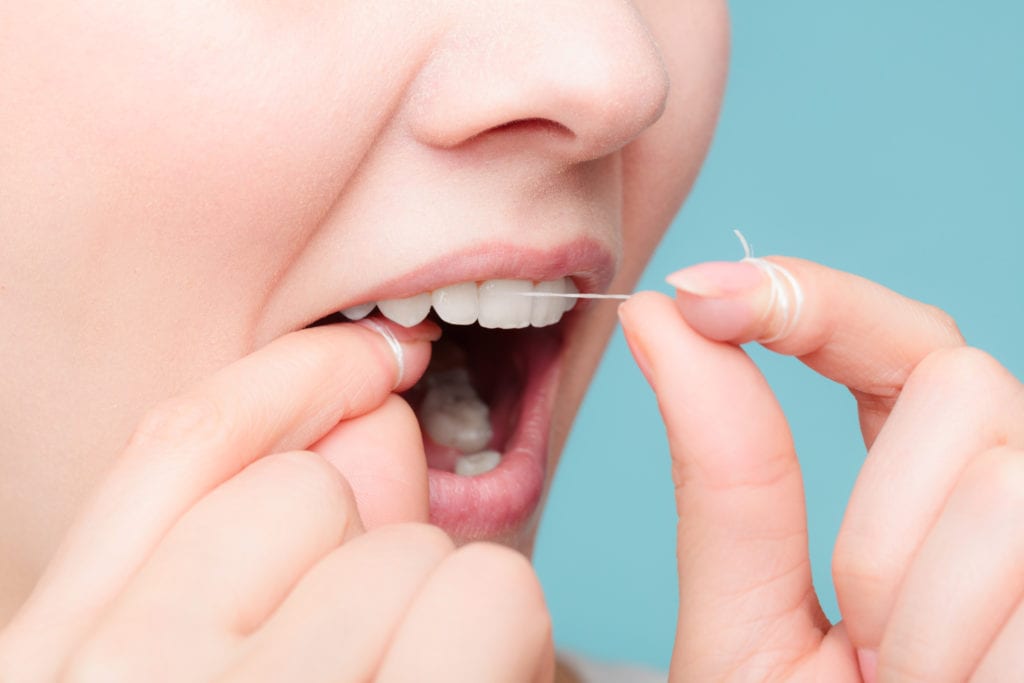At Slater Family Dental, we understand that flossing ranks fairly low a habit many of our patients enjoy doing on a daily basis. While most people don’t have a problem following the American Dental Association’s recommendation to brush at least twice a day, finding the time to floss at least once seems far more problematic for some. Even though Dr. Slater continues to emphasize the importance of flossing to many of his patients, the habit is one that many patients still neglect.
Over the years, flossing has developed a bad rap that makes it easy for some patients to dismiss the habit as unnecessary. A 2016 report issued by the Associated Press found that insufficient evidence existed to prove that flossing offered any health benefits. However, oral health professionals like Dr. Slater continue to advocate for the habit as one of the best ways to prevent tooth decay and gum disease.
While flossing may not have the same overall impact as brushing, it does offer specific benefits you can’t get from anything else. Unlike brushing which removes food particles and oral bacteria from the surface of our teeth and along the gum line, flossing works to clean between and below those areas where a brush cannot reach.
Considering the important role flossing plays, it’s not surprising to find that the most common place for cavities to develop is actually between our teeth. If that fact doesn’t provide you with enough incentive to pick up the floss, here are a few more benefits you might want to consider.

Flossing Helps to Prevent Bad Breath
Studies have estimated that about 25 percent of the population on the planet suffers from persistent bad breath. While bad breath can be caused by a number of issues, the most likely culprit behind foul smelling breath is failing to properly floss.
When you allow food particles to sit between your teeth, bacteria in the mouth starts to break them down into sulfur compounds, the cause of bad breath.
By flossing, however, you can clean up to two millimeters below your gum tissue to reach bacteria where it’s starting to build up. In fact, if you’ve ever noticed your floss stinking after you use it that’s because of bacteria you just removed.
So do your breath and oral health a favor and start flossing more frequently.
Flossing Helps to Prevent Tooth Decay & Gum Disease
Researchers have discovered that a large number of bacteria naturally develop in the mouth. These bacteria have been scientifically proven to create toxic substances linked to the development of tooth decay and gum disease.
The best way to prevent that interaction is to remove the plaque from your mouth before it has a chance to build up. Allowing plaque to remain in the mouth gives it the chance to harden into tartar, a yellowish substance that discolors tooth enamel and causes inflammation of gum tissue.
Fortunately, a combination of flossing and brushing daily can help to minimize tartar buildup by removing plaque while still soft.

Flossing Could Help Diabetes Patients
Patients who have trouble controlling their blood sugar levels have a higher likelihood of developing an oral infection. This is because of the presence of glucose in our saliva which, when at higher levels, could help to increase the growth of harmful oral bacteria.
Some studies have found that patients with type 2 diabetes are three times more likely to develop gingivitis – an early stage of gum disease – when compared to those without the disease. Additionally, oral health experts have found this connection may be a two-way street, as gum disease could also cause blood sugar to rise and make it more difficult for patients to control their diabetes.
If you’re still not convinced of the value provided by flossing, make sure to talk to any member of our team at Slater Family Dental. Not only can Dr. Slater and our team of dental hygienists provide you with a list of reasons why you should floss, but we’ll also be happy to give you some floss for free.




